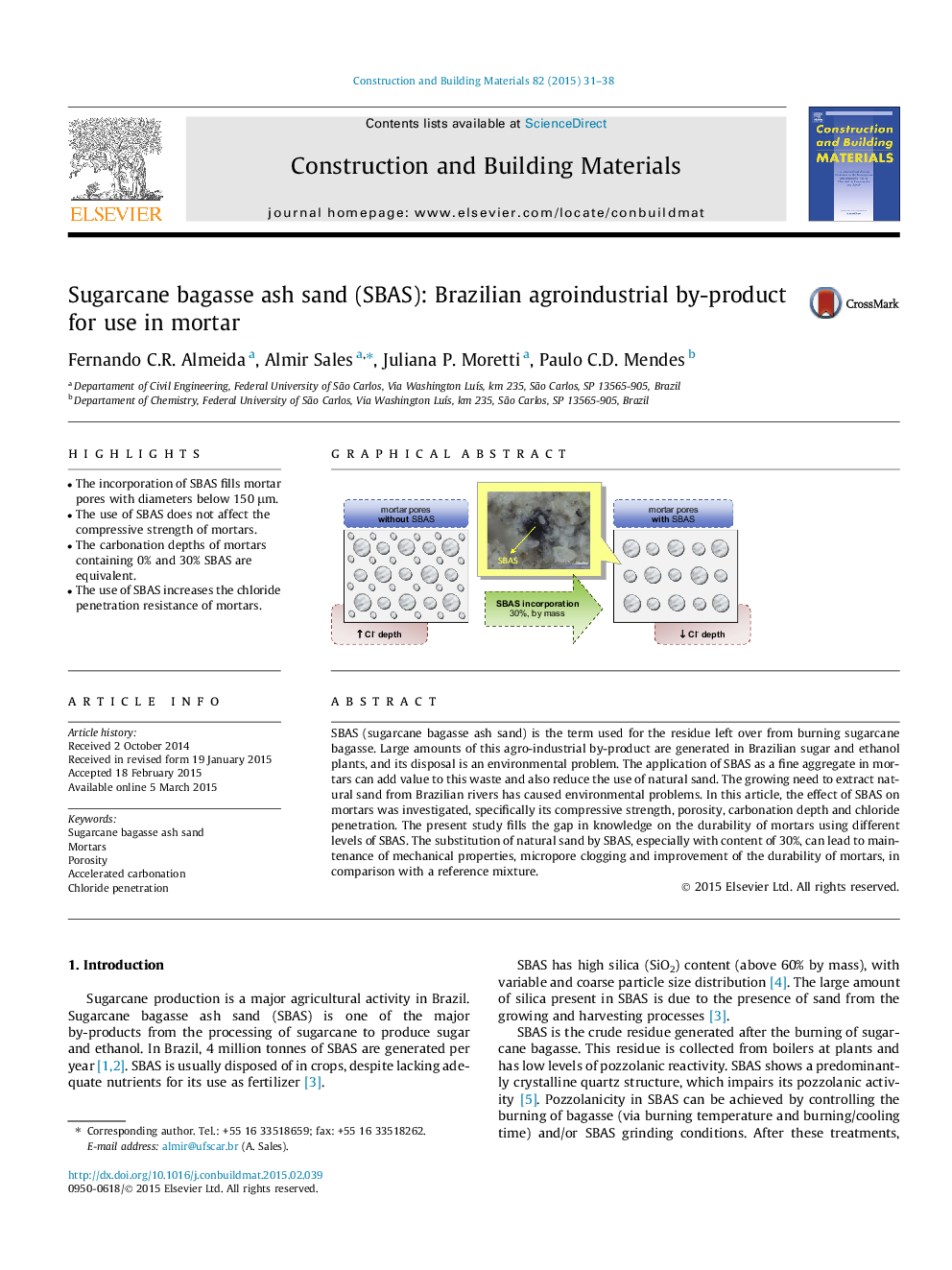| Article ID | Journal | Published Year | Pages | File Type |
|---|---|---|---|---|
| 256911 | Construction and Building Materials | 2015 | 8 Pages |
•The incorporation of SBAS fills mortar pores with diameters below 150 μm.•The use of SBAS does not affect the compressive strength of mortars.•The carbonation depths of mortars containing 0% and 30% SBAS are equivalent.•The use of SBAS increases the chloride penetration resistance of mortars.
SBAS (sugarcane bagasse ash sand) is the term used for the residue left over from burning sugarcane bagasse. Large amounts of this agro-industrial by-product are generated in Brazilian sugar and ethanol plants, and its disposal is an environmental problem. The application of SBAS as a fine aggregate in mortars can add value to this waste and also reduce the use of natural sand. The growing need to extract natural sand from Brazilian rivers has caused environmental problems. In this article, the effect of SBAS on mortars was investigated, specifically its compressive strength, porosity, carbonation depth and chloride penetration. The present study fills the gap in knowledge on the durability of mortars using different levels of SBAS. The substitution of natural sand by SBAS, especially with content of 30%, can lead to maintenance of mechanical properties, micropore clogging and improvement of the durability of mortars, in comparison with a reference mixture.
Graphical abstractFigure optionsDownload full-size imageDownload as PowerPoint slide
